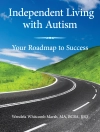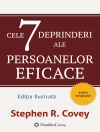Talking to My Mum is an activity pack for five-eight-year-olds whose families have experienced domestic abuse to help and encourage them to open up to their mothers about their distressing experiences.
Based on the authors’ work with families who have experienced domestic abuse, the book is full of illustrated worksheets featuring animal characters who encourage the young reader to explore a range of memories, such as changes in the family’s living arrangements or happy memories with siblings or favourite toys that each prompt a particular emotion. These activities are accompanied by guidance on how to use them appropriately. Talking to My Mum is designed for children and their mothers to complete together, and will assist both child and mother with improving communication about the past, present and future.
This activity pack will be an essential tool for families with children who have lived through domestic abuse, as well as social workers and other professionals working with them.
İçerik tablosu
Acknowledgements. Foreword by June Freeman. Introduction and guidance. Section 1: Early days. 1. Me and my mum. 2. Your new friends. 3. Exploring the place where you live. 4. Exploring the refuge. 5. Changes I like and things I miss. 6. Match the feelings. 7. The same and different. 8. About safety. Section 2: Talking about things that matter. 9. Wise ideas from Ollie. 10. More about us. 11. A story about Nibbles and Prickles. 12. Good things and bad things. 13. Good times and bad times. 14. Bas talks about changes in families. 15. Talking about my dad. 16. Taz imagines a happy time. 17. Feelings tree. Section 3: Moving on. 18. Keeping track of my life. 19. Moving on. 20. Safe hands. 21. My space. 22. Looking backwards and looking forwards. Certificate. Reflection sheet and feedback form. Conclusion. Useful contacts.
Yazar hakkında
Cathy Humphreys is a senior lecturer in Health and Social Work at the University of Warwick. She has worked as a practitioner, researcher and educator in domestic violence and child abuse. Catherine’s other research areas include substance misuse, mental health, outreach and advocacy services for both women and children, and child contact.












